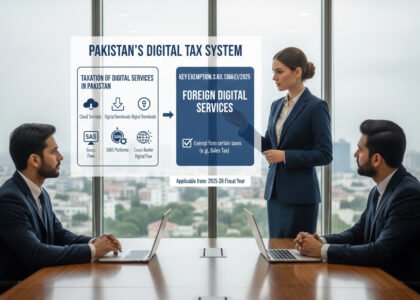SRO 1366(I)/2025 — Complete Guide to the Exemption on Digital Presence Proceeds Tax (With Practical Examples)
On 10 July 2025, the Federal Board of Revenue (FBR) issued SRO 1366(I)/2025 under Section


On 10 July 2025, the Federal Board of Revenue (FBR) issued SRO 1366(I)/2025 under Section

Navigating Pakistan’s tax system requires understanding not just the rates but also their legal foundations.


If you’re an Overseas Pakistani, there’s good news when it comes to purchasing or selling

Clarifying the Taxation of Foreign Income Understanding the Tax Landscape for Pakistani Residents Reference: Income